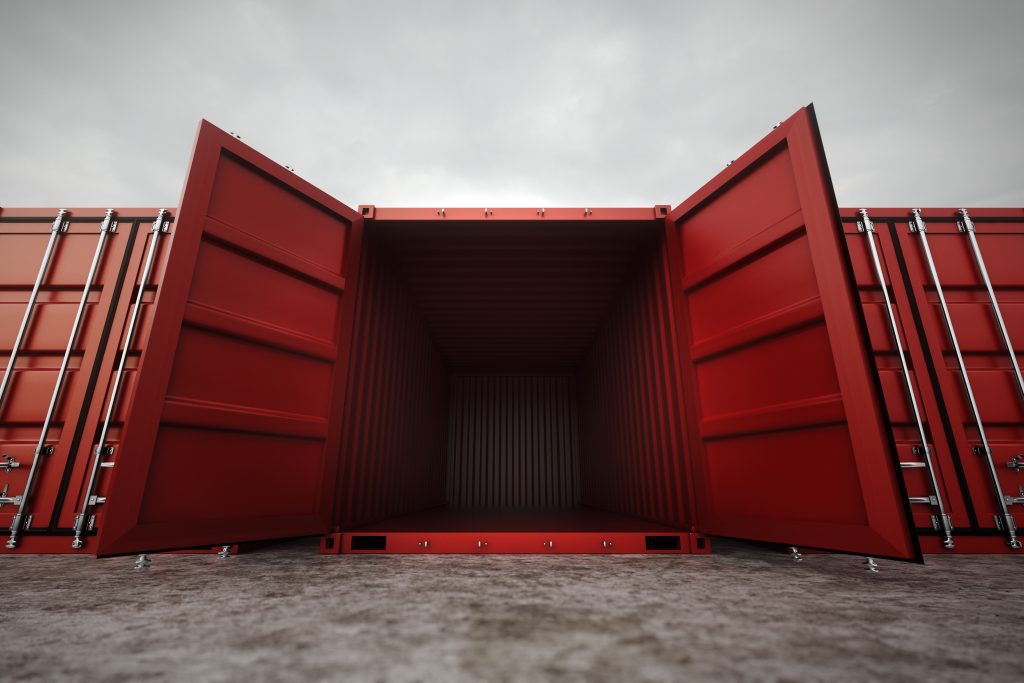Yes, stacking multiple sea cans, or shipping containers, is a common practice that offers efficient and versatile storage or space solutions. Containers are designed to support vertical stacking, allowing you to create multi-level storage configurations or even makeshift buildings. Stacking sea cans can maximize the use of limited space, making it ideal for temporary or long-term storage, construction projects, pop-up shops, or even modular housing. However, proper stacking requires careful planning, secure anchoring, and structural considerations to ensure stability and safety. Whether you’re looking to create additional storage capacity or innovative structures, stacking sea cans can provide a flexible and adaptable solution to meet various needs. It’s essential to follow guidelines, regulations, and professional advice to ensure safe and successful stacking practices.
Shipping containers, commonly referred to as sea cans, are inherently mobile due to their design and construction. While they are primarily used for transporting goods via ships, their mobility extends beyond maritime transportation. Shipping containers can be easily transported using trucks, trains, and cranes, making them versatile for various applications. This mobility allows for convenient relocation of goods, storage solutions, and even the creation of temporary or permanent structures. Whether used for portable storage, pop-up shops, construction sites, or housing, the mobility of sea cans provides flexibility and adaptability to meet different needs. However, it’s important to consider logistics, permits, and transportation methods when moving shipping containers to ensure a smooth and successful transition.


Seacans, or shipping containers, have an average lifespan of 10 to 20 years or more, depending on factors such as usage and maintenance. With proper care and maintenance, they can remain in service for an extended period. Regular inspections and repairs help ensure their longevity and functionality.
There are restrictions on what you can store inside a sea can, and they may vary depending on the provider and regulations. Typically, hazardous materials, perishable items, illegal or stolen goods, and unauthorized or dangerous items are not allowed. It’s important to consult with the shipping container provider to understand their specific guidelines and any additional restrictions they may have in place. Storing high-value items or using seacans for living purposes is generally discouraged.
Yes, seacans are commonly used for international shipping via cargo ships. They are built to withstand the rigors of long-distance transportation, ensuring the safe delivery of goods. It’s important to comply with international shipping regulations and work with reputable shipping companies to ensure smooth and efficient international shipping processes.
When planning to place a shipping container or seacan on your property, it’s essential to start by understanding local zoning regulations. These laws impact the use and placement of seacans to ensure they’re compatible with the land use and community standards. Always consult with your local municipal or zoning authority first to get precise, up-to-date information regarding the placement regulations in your area.
A permit is often required to install a seacan. The permit process varies by location but typically checks that your seacan meets local size, location, and use guidelines. To maintain safety and community aesthetics, you’ll also need to comply with property setbacks, which dictate how far your seacan must be from property lines, structures, and roadways.
Safety considerations are key. This includes ensuring the season’s structural integrity, access, and minimal impact on the surrounding area. Meeting safety regulations helps protect you and your neighbours.
It’s also important to consider the long-term implications of having a seacan on your property. This may affect property insurance, resale value, and future land use. Understanding these points can help in making an informed decision that aligns with your long-term plans.
Choosing a reliable provider like Yellowhead for your seacan needs can streamline the process. They can guide you through selecting the appropriate seacan, understanding permit and zoning requirements, and ensuring that your storage solution complies with all legal and safety standards for a hassle-free experience.
Yes, sea cans are available for purchase. Many companies offer both rental and sales options for sea cans, allowing you to choose the option that best fits your needs.
Seacans have gained recognition for their sustainability and eco-friendliness. They can be repurposed, reused, or recycled, contributing to reduced waste and environmental impact. By using seacans for storage or construction purposes, you are effectively giving them a second life and reducing the need for new construction materials.
Whether you need St. Albert self storage or storage units in Sherwood Park, we have plenty of room for all of our local residents. Compare our prices with other storage facilities, then sign up with us today for cost-effective, secure storage for your belongings!
If you are looking for storage facilities in Edmonton, we provide friendly and efficient customer service, top-security storage, mobile storage options, and competitive pricing. Call us today and store your belongings with Edmonton storage you can trust!
Discounts including, Military & First Responders, Multi-Units, Student, Seniors and Disability. Get the best deal on storage unit rental prices.
If you find a lower rate, with proof of price, we offer you a rate of 5% less than our competitor’s price!
Please note the 5% less applies only to rentals
** Competitor price match is only available to valid competitors within the city limits of Edmonton.
Mon-Fri: 9am to 5pm
Sat: 9am to 4pm
Sun: 10am to 2pm
Closed Holidays